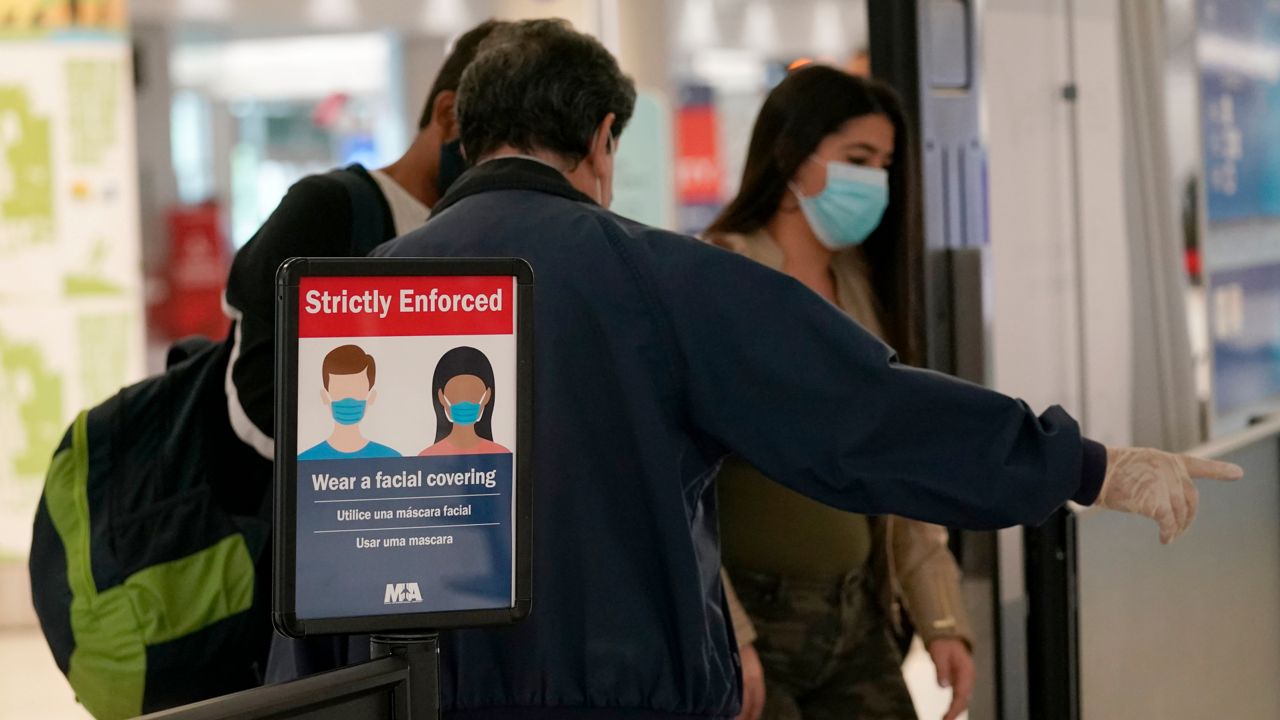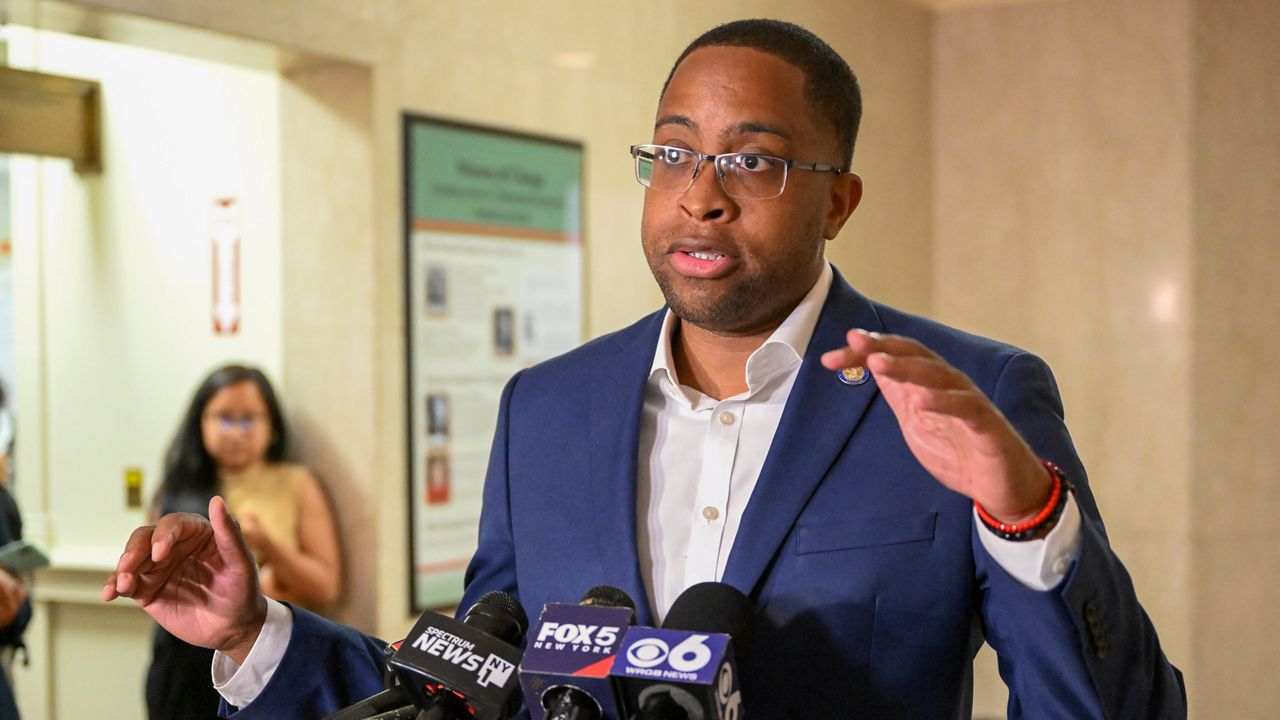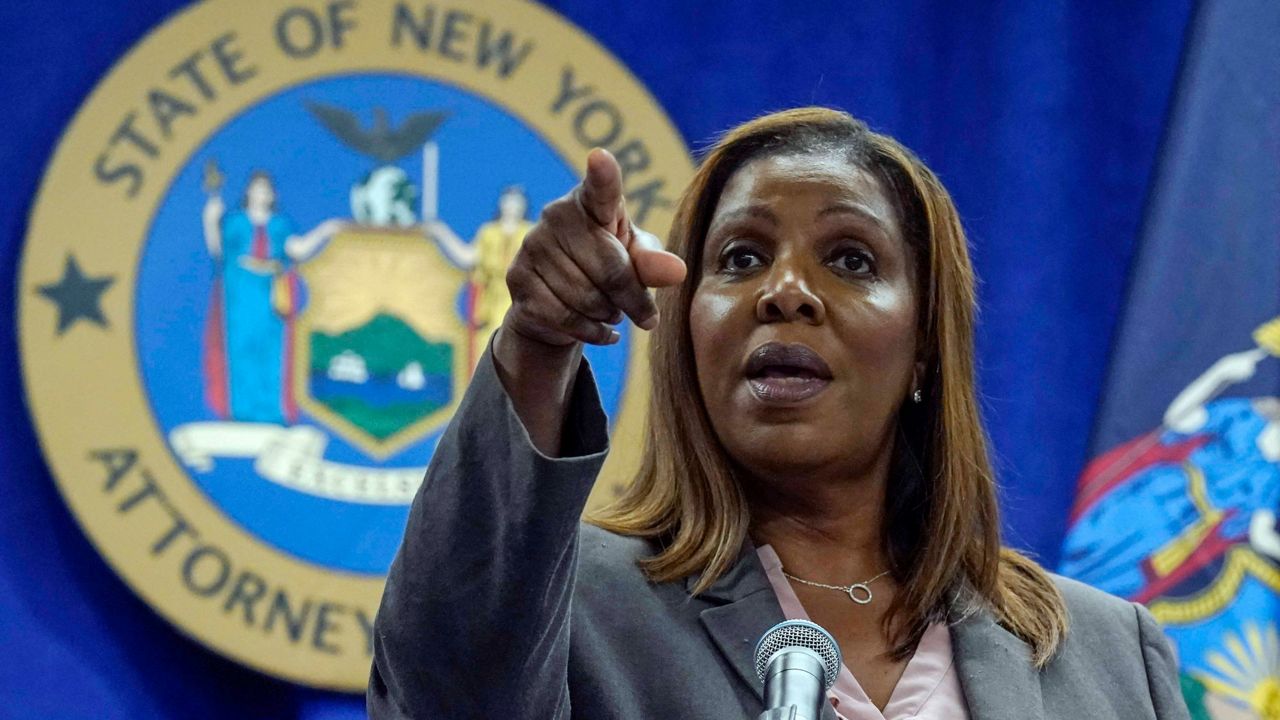A bill that requires workplaces to have COVID-related safety measures in place was signed into law on Wednesday night by Gov. Andrew Cuomo.
But the approval of the bill came with an agreement with Democrats in the state Legislature that amendments would be added in the coming weeks to provide businesses with a clear timeline for fixing violations before being immediately at risk of a lawsuit.
The measure's approval was cheered by a range of advocacy organizations who had called for its passage since the early days of the legislative session. But business groups were staunchly opposed, pointing to the potential legal exposure with the new law.
Some of the bill's requirements had been in place due to executive orders signed by the governor since last year, including social distancing standards, time for hand washing, and access to personal protective equipment for workers.
Cuomo's approval message after signing the bill into law would includes a deal with lawmakers to make "technical changes" to the bill that include having the state Department of Labor and and employers a specific timeline and instructions for implementing the changes.
The changes would also include "an immediate requirement for employers to cure violations in order to better protect the safety of workers" and limit lawsuits in the process.
The approval of the law, known by supporters as the NY Hero Act, pointed to the workplaces that had remained open for much of the pandemic and the toll that had taken on workers.
“Too many workers have already sacrificed their health for our community’s benefit. The New York HERO Act will honor their efforts by giving workers the tools to protect themselves while on the job,” said Sen. Mike Gianaris, the measure's main sponsor in the state Senate. “I appreciate the efforts of so many advocates and organizers who made this success possible.”
The bill's approval comes as New York on May 19 is heading toward a broader reopening of businesses and public gathering spaces as the COVID positive rate continues a multi-week decline and more people are vaccinated.
“I am honored to have sponsored the NY HERO Act that was borne out of my very own experiences serving as a nurse on the frontlines during the peak of the pandemic. It is crucial that workers are able to operate in a safe environment and have the full support of New York State,” said Assemblywoman Karines Reyes.
Labor unions and advocacy organizations also hailed the new law, saying it enshrines needed protections for workers in the state.
“This pandemic exposed the weaknesses in workplace safety," said AFL-CIO President Mario Cilento. "This legislation will help ensure that employers take every reasonable measure necessary to keep workers safe on the job."
Advocates like Eddie Taveras, the immigration director at FWD.us, pointed to the measure's biggest beneficiaries potentially being workers at risk of exploitation.
“This pandemic exposed the weaknesses in workplace safety," he said. "This legislation will help ensure that employers take every reasonable measure necessary to keep workers safe on the job."
But business groups saw the provisions differently in a state that is already costly to operate in, and where the unemployment rate remains higher than the national average. Still, the approval message included by Cuomo was not dismissed out of hand.
"The last thing struggling small businesses need to worry about right now is getting swept up in a deluge of lawsuits. While we hoped that Governor Cuomo and the legislature would amend the NY HERO Act to remove the trial lawyer-friendly private right of action, we are happy to see the bill amended to include a grace period for businesses to comply before being sued," said Tom Stebbins, the executive director of the Lawsuit Reform Alliance.
It's not yet clear when the Legislature will act on the amendments to the law as outlined by Cuomo, including the "cure period" for violations.
"Private rights of action do nothing to protect workers or help business owners and everything to line the pockets of the powerful personal injury trial lawyer lobby. Business owners should at least be allowed time – a cure period – to remedy violations before they are subjected to costly litigation," Stebbins said. "We're encouraged by today's amendment, which we hope will minimize the damage done and create a layer of protection against predatory and extortionate lawsuits."








